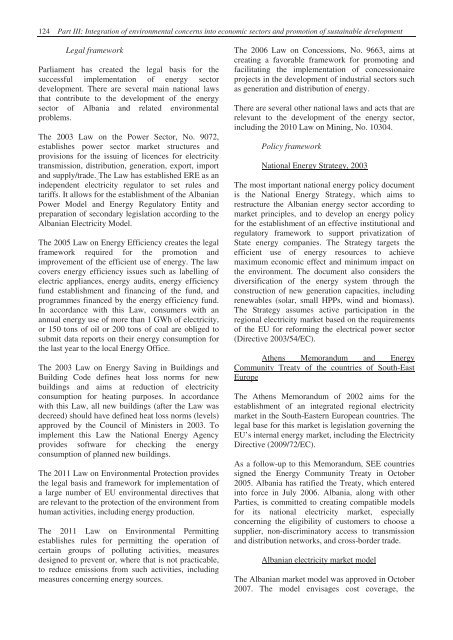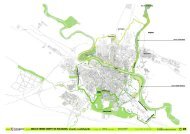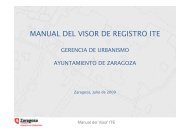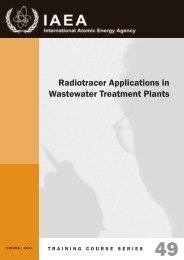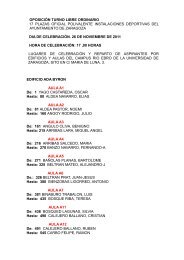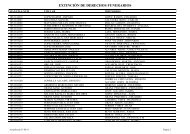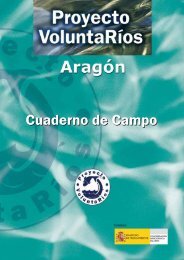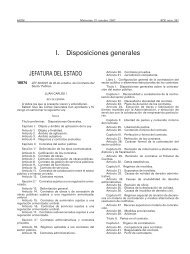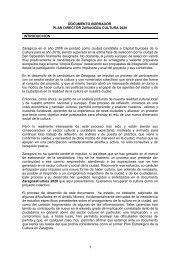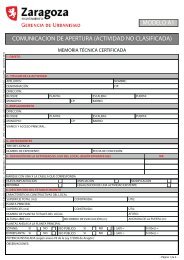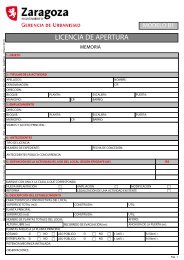Second Environmental Performance Review of Albania
Second Environmental Performance Review of Albania
Second Environmental Performance Review of Albania
You also want an ePaper? Increase the reach of your titles
YUMPU automatically turns print PDFs into web optimized ePapers that Google loves.
124 Part III: Integration <strong>of</strong> environmental concerns into economic sectors and promotion <strong>of</strong> sustainable developmentLegal frameworkParliament has created the legal basis for thesuccessful implementation <strong>of</strong> energy sectordevelopment. There are several main national lawsthat contribute to the development <strong>of</strong> the energysector <strong>of</strong> <strong>Albania</strong> and related environmentalproblems.The 2003 Law on the Power Sector, No. 9072,establishes power sector market structures andprovisions for the issuing <strong>of</strong> licences for electricitytransmission, distribution, generation, export, importand supply/trade. The Law has established ERE as anindependent electricity regulator to set rules andtariffs. It allows for the establishment <strong>of</strong> the <strong>Albania</strong>nPower Model and Energy Regulatory Entity andpreparation <strong>of</strong> secondary legislation according to the<strong>Albania</strong>n Electricity Model.The 2005 Law on Energy Efficiency creates the legalframework required for the promotion andimprovement <strong>of</strong> the efficient use <strong>of</strong> energy. The lawcovers energy efficiency issues such as labelling <strong>of</strong>electric appliances, energy audits, energy efficiencyfund establishment and financing <strong>of</strong> the fund, andprogrammes financed by the energy efficiency fund.In accordance with this Law, consumers with anannual energy use <strong>of</strong> more than 1 GWh <strong>of</strong> electricity,or 150 tons <strong>of</strong> oil or 200 tons <strong>of</strong> coal are obliged tosubmit data reports on their energy consumption forthe last year to the local Energy Office.The 2003 Law on Energy Saving in Buildings andBuilding Code defines heat loss norms for newbuildings and aims at reduction <strong>of</strong> electricityconsumption for heating purposes. In accordancewith this Law, all new buildings (after the Law wasdecreed) should have defined heat loss norms (levels)approved by the Council <strong>of</strong> Ministers in 2003. Toimplement this Law the National Energy Agencyprovides s<strong>of</strong>tware for checking the energyconsumption <strong>of</strong> planned new buildings.The 2011 Law on <strong>Environmental</strong> Protection providesthe legal basis and framework for implementation <strong>of</strong>a large number <strong>of</strong> EU environmental directives thatare relevant to the protection <strong>of</strong> the environment fromhuman activities, including energy production.The 2011 Law on <strong>Environmental</strong> Permittingestablishes rules for permitting the operation <strong>of</strong>certain groups <strong>of</strong> polluting activities, measuresdesigned to prevent or, where that is not practicable,to reduce emissions from such activities, includingmeasures concerning energy sources.The 2006 Law on Concessions, No. 9663, aims atcreating a favorable framework for promoting andfacilitating the implementation <strong>of</strong> concessionaireprojects in the development <strong>of</strong> industrial sectors suchas generation and distribution <strong>of</strong> energy.There are several other national laws and acts that arerelevant to the development <strong>of</strong> the energy sector,including the 2010 Law on Mining, No. 10304.Policy frameworkNational Energy Strategy, 2003The most important national energy policy documentis the National Energy Strategy, which aims torestructure the <strong>Albania</strong>n energy sector according tomarket principles, and to develop an energy policyfor the establishment <strong>of</strong> an effective institutional andregulatory framework to support privatization <strong>of</strong>State energy companies. The Strategy targets theefficient use <strong>of</strong> energy resources to achievemaximum economic effect and minimum impact onthe environment. The document also considers thediversification <strong>of</strong> the energy system through theconstruction <strong>of</strong> new generation capacities, includingrenewables (solar, small HPPs, wind and biomass).The Strategy assumes active participation in theregional electricity market based on the requirements<strong>of</strong> the EU for reforming the electrical power sector(Directive 2003/54/EC).Athens Memorandum and EnergyCommunity Treaty <strong>of</strong> the countries <strong>of</strong> South-EastEuropeThe Athens Memorandum <strong>of</strong> 2002 aims for theestablishment <strong>of</strong> an integrated regional electricitymarket in the South-Eastern European countries. Thelegal base for this market is legislation governing theEU’s internal energy market, including the ElectricityDirective (2009/72/EC).As a follow-up to this Memorandum, SEE countriessigned the Energy Community Treaty in October2005. <strong>Albania</strong> has ratified the Treaty, which enteredinto force in July 2006. <strong>Albania</strong>, along with otherParties, is committed to creating compatible modelsfor its national electricity market, especiallyconcerning the eligibility <strong>of</strong> customers to choose asupplier, non-discriminatory access to transmissionand distribution networks, and cross-border trade.<strong>Albania</strong>n electricity market modelThe <strong>Albania</strong>n market model was approved in October2007. The model envisages cost coverage, the


